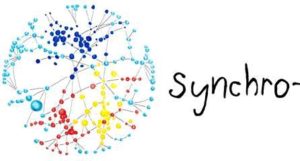 The SYNCHRO-NET deliverable 8.6 “Advisory Board and ECTF Report” summarises the outcomes of the 2nd Advisory Meeting that was organised among seven Advisors in Munich 11th of May 2017. The document also reports activities of the project’s the Enhanced Cooperation Taskforce (ECTF) that engages key inter-governmental and non-governmental organisations like the European Shippers’ Council and the World Customs Organisation. In the meeting, the Advisory Board members continued to provide strategic advice and guidance to the SYNCHRO-NET community on how to maximize the impact of the project’s results. The Advisors stressed the importance end-user-driven innovation and piloting: without common understanding and trust across logistics functions and management roles, much of the potential of SYNCHRO-NET innovations will be lost. To avoid this, the Board advised the SYNCHRO-NET partners to develop common Key Performance Indicators and to strengthen IT integration across transport modalities. The Board sees that end-to-end coordination across the intermodal supply chain unlocks efficiencies and contributes to fast, cost-efficient, and environmentally friendly logistics operations. The advisors reminded, however, that too much optimization can backfire and result in new congestions and disruption in the supply chain. The Board recommended the SYNCHRO-NET project study the costs, benefits and risks of slow steaming – especially among shippers, shipping lines, freight forwarders and consignees – and to device incentives for promoting a wider adoption of the slow steaming approach. Altogether, the 2nd Advisory Board meeting recommended directions for the final months of the SYNCHRO-NET demonstrations and technical integration. The outcomes of the meetings also help the project to come up with well-informed policy recommendations for the future promotion of synchro-modality and slow steaming in Europe and beyond.
The SYNCHRO-NET deliverable 8.6 “Advisory Board and ECTF Report” summarises the outcomes of the 2nd Advisory Meeting that was organised among seven Advisors in Munich 11th of May 2017. The document also reports activities of the project’s the Enhanced Cooperation Taskforce (ECTF) that engages key inter-governmental and non-governmental organisations like the European Shippers’ Council and the World Customs Organisation. In the meeting, the Advisory Board members continued to provide strategic advice and guidance to the SYNCHRO-NET community on how to maximize the impact of the project’s results. The Advisors stressed the importance end-user-driven innovation and piloting: without common understanding and trust across logistics functions and management roles, much of the potential of SYNCHRO-NET innovations will be lost. To avoid this, the Board advised the SYNCHRO-NET partners to develop common Key Performance Indicators and to strengthen IT integration across transport modalities. The Board sees that end-to-end coordination across the intermodal supply chain unlocks efficiencies and contributes to fast, cost-efficient, and environmentally friendly logistics operations. The advisors reminded, however, that too much optimization can backfire and result in new congestions and disruption in the supply chain. The Board recommended the SYNCHRO-NET project study the costs, benefits and risks of slow steaming – especially among shippers, shipping lines, freight forwarders and consignees – and to device incentives for promoting a wider adoption of the slow steaming approach. Altogether, the 2nd Advisory Board meeting recommended directions for the final months of the SYNCHRO-NET demonstrations and technical integration. The outcomes of the meetings also help the project to come up with well-informed policy recommendations for the future promotion of synchro-modality and slow steaming in Europe and beyond.
Source: Synchronet Staff